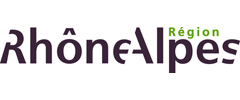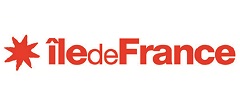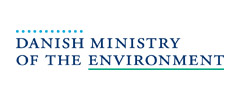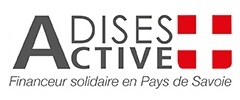WECF and AWHHE Project Report 2005
Improvement of access to safe water and sanitation in rural areas of Armenia, and development of income generating organic farming activities.
12.07.2006 |Gero Fedtke
Project village Fantan, Kotayk marz, Armenia.
Tapping Resources – use the strength of women for sustainable development
Armenia
In 2005,WECF started the four-year (2005–2008) project “Tapping Resources” on poverty alleviation with partners from the poorest countries in the Caucasus and Central Asia funded by the TMF programme of the Dutch Ministry of Foreign Affairs. Main project implementation takes place in Armenia, Afghanistan and Uzbekistan.The goal of the project is direct sustainable poverty alleviation and direct improvement of the environment and living conditions of people living in poverty in marginal rural are as in Afghanistan, the Caucasus and Central Asia. This will be accomplished through the implementation of applied, sustainable water-, sanitation- and agricultural pilot projects, capacity building of civil society, improving governance, increasing democracy and involvement in policy development and particularly strengthening the position of women on all levels.
Thus, the project is working towards the realization of the Millennium Development Goals. The project started to develop demonstration projects with a focus on involving women in project implementation and local decision making. The demonstration projects will help to identify legislative, institutional and cultural barriers as well as catalysts and appropriate technologies.
The lessons will be used to replicate and improve the results and prepare recommendations for national and international policy making, in particular, in reaching the Millennium Development Goals.
The international policy work is carried out within the framework of the WSSD partnership Women for Water, Water for Women, of which WECF is one of the founding members.
In Armenia, WECF and its partner ‘Armenian Women for Health and a Healthy Environment’ (AWHHE www.awhhe.am) carry out activities aimed at poverty reduction through improved water and sanitation, organic farming and increased community participation in communal development. See also the project page.

The project’s start-up meeting took place from February 7th to 11th 2005 in Armenia’s capital Yerevan.
The project focuses on working towards the realisation of five Millennium Development Goals on a concrete local level: environmental sustainability, especially increasing access to water (Goal 7), reducing poverty (Goal 1), increasing access of girls to primary schooling (Goal 3), development of partnerships (Goal 8) and improvement of maternal health (Goal 5). AWHHE implements demonstration projects in three villages in the vicinityof the capital Yerevan: Hayanist and Dzoraghbyur in Ararat province and Fantan in Kotayk province.
The projects focus on involving women in project implementation and local decision making. AWHHE staff has been trained in project planning tools such as base-line analysis, stakeholder analysis and monitoring and evaluation plans, as well as in the Ecological Sanitation concept. This year’s activities concentrated on receiving base-line data, awareness-raising on hygiene, sanitation, and health, organic farming, as well as improving water supply. The activities conducted in the villages consisted of several phases.
The first phase has been carrying out a base line study in the three villages to assess the level of poverty, lack of access to water, sanitation, primary schooling and the gender and health situation. This socio-economic and gender survey can be found on WECF’s website.
The results of the survey show that the populations in the three pilot villages live in poverty, some in extreme poverty, with incomes lower than 1 USD per day per household. This has implications for water and sanitation fees, as these should not represent more than 3 – 5% of household budgets. It was also discovered that in one village, Fantan, 260 people had been hospitalized in 2004 for drinking water from the polluted old source, but also that a new centralized water supply system had been installed in the previous year, but that it was not being used for lack of access to credit to install the water meters.
In all three villages, AWHHE monitored the drinking water quality over the year. From 64 analyzed water samples, 13 were found not to be safe.

Public tap on the street in project villages Fantan (left) and Hayanist (right). Villagers carry water from them in canisters to their homes. In Hayanist, some connected their houses themselves.
Together with students of Wageningen University, a study on pesticide use in the village Hayanist has been done, which has been published on WECF’s website as well. The Armenian Water and Sewerage Company (AWSC) has provided analyses of the drinking water supply systems in all three villages.
The second phase consisted of developing cooperation with the local authorities and responsible water companies. Thanks to this cooperation, in the first year of the project, the village of Fantan received water-meters from AWHHE and WECF so that the villagers could connect to the new water supply system. In the village of Hayanist, engineering and cost calculations were made for the installation of new dry urine-diverting toilets for the primary school. In the village of Dzoraghbyur, farmers have been trained on organic farming. From June 28th to 30th, the WECF staff met with local farmers in the three villages where projects are being done and visited their fields and orchards with them. They discussed ways of introducing or improving (organic) farming methods.

Agriculture expert Manuk Harutyunyan (right) with farmers in their orchard
Improving waste management by implementation of safe alternatives (e.g.composting) is another project. Meetings with local authorities on the results of existing waste management took place in two villages by July, 2005. AWHHE has been promoting the participation of rural women and local leaders in the decision making process. Finally, a village committee has been established in Hayanist in June, 2005.
The third phase consisted of educational and press activities. AWHHE has created information leaflets on Ecological Sanitation, Water Safety, Hygiene, composting, plant protection and biohumus.
Further information materials were translated into Armenian. These materials were used and distributed in 20 lectures on health, sanitation,water and ecological agriculture which have been conducted in the villages. The director of AWHHE’s community mobilization unit has written a picture book for children “The Adventures of a Water Droplet” and conducted painting contests and ecological games in the schools of the three project villages. They were met with enthusiasm by children and teachers and surely reached their aim of making them think more about the environment they are living in.

School-children preparing their action in an eco-game organised by AWHHE
On the local and national levels, the Armenian media has covered AWHHE’s project related activities in newspapers, on television and on the Internet.


































